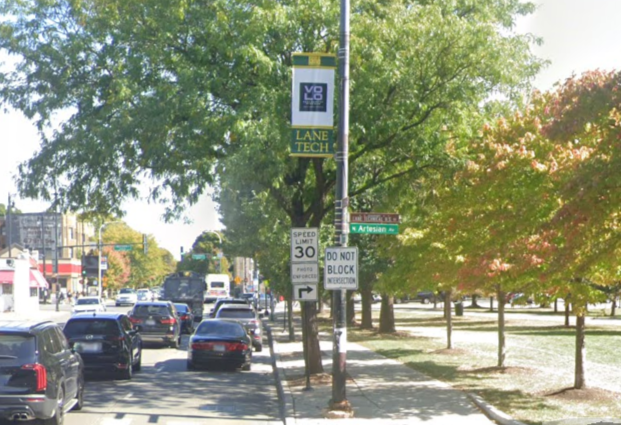
A former Chicago police officer dismissed for sexual misconduct involving a minor later secured employment with Chicago Public Schools (CPS) as a security guard, sparking significant concerns about hiring practices and interagency communication. Records obtained by WTTW News reveal that Darius Alexander, 41, managed to join CPS despite his troubling history and placement on the city’s do-not-hire list.
Alexander began his career with the Chicago Police Department (CPD) in 2006. His tenure came to an end following a 2012 incident in which he reportedly solicited sexual favors from a 17-year-old girl. The girl, whose mother’s car had been impounded, had informed Alexander of her age, according to police board investigators. Alexander’s misconduct led to his termination in 2019 and his subsequent placement on the city’s do-not-hire list.
Despite his official designation as ineligible for city employment, Alexander persisted in applying to CPS positions, submitting 26 separate applications over seven years. In 2021, CPS hired him as a permanent security guard at Lane Technical High School, located at 2501 W Addison St, Chicago, IL 60618, a role that involved direct interactions with high school students.
Records indicate that Alexander misrepresented his work history in multiple applications, concealing his time with CPD by claiming to have worked at a city call center. In some instances, he omitted his police background entirely. CPS documents show that Alexander’s employment began even earlier, with him working at private events in 2017 under similarly falsified records.
Concerns about Alexander’s history came to the forefront following a deeper investigation by CPS. The inquiry revealed his falsified employment records and prior misconduct, leading the school district to schedule a discharge hearing in 2024. However, Alexander resigned before the process could conclude. CPS subsequently added a do-not-hire designation to his file.
In 2023, Alexander also served as an assistant coach for Lane Tech’s girls' flag football team. CPS confirmed that Alexander participated in practices and games alongside varsity coaches but had not completed the required training for the position.
This case has underscored serious gaps in the hiring and vetting processes within CPS. Questions remain about whether better coordination between city agencies and CPS could have prevented Alexander’s employment in a role involving close contact with students. The revelations have sparked broader discussions about safeguarding students and strengthening hiring protocols to prevent similar scenarios in the future.

Victims of sexual abuse by high school coaches often face a combination of emotional trauma and uncertainty about how to respond. Attorney Erv Nevitt, an experienced Illinois lawyer specializing in these cases, explains the legal options available to those affected. In this conversation, Nevitt discusses the responsibilities of schools, the importance of accountability, and the steps victims can take to protect their rights.
Editor Darla Medina: What legal steps can victims of sexual abuse by a high school employee take to address what they've endured?
Attorney Erv Nevitt: Victims in these situations can pursue civil action against the individual responsible for the abuse. Additionally, if the school district failed to properly screen or supervise the employee, or ignored warning signs, the district could be held liable for negligence.
Medina: What role does the school’s hiring process play in these cases?
Nevitt: The hiring process is critical. If a district overlooks red flags in a candidate's background, like prior misconduct or falsified records, that negligence can be grounds for legal action. Schools have a duty to protect their students, and failing to do so can lead to accountability through the courts.
Medina: How can victims feel empowered to come forward, considering the stigma or fear of retaliation?
Nevitt: It’s understandable to feel apprehensive, but it’s important to know the law is on their side. Victims can work with attorneys to ensure their privacy is respected, and they can report anonymously in some cases. Support networks and legal representation can make a significant difference in easing the process.
Medina: Are there time limits for victims to take legal action?
Nevitt: Yes, there are statutes of limitations, but these vary depending on the jurisdiction and the nature of the case. Illinois, for example, has extended the time limits for many cases involving child sexual abuse, but it’s vital for victims to act sooner rather than later to protect their options.
Medina: What advice would you give to families dealing with this kind of trauma?
Nevitt: I’d encourage families to seek both legal and emotional support. Consulting an experienced attorney can help them understand their rights and the steps they can take. At the same time, working with counselors or support groups can help in processing the emotional impact.
If your family has been impacted by sexual abuse involving a high school coach, you don’t have to navigate this alone. Understanding your rights and holding those responsible accountable can make all the difference. Contact us today for a free consultation to explore your legal options and take the first step toward justice and healing.
 info@legalherald.com
info@legalherald.com